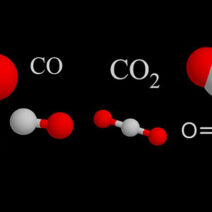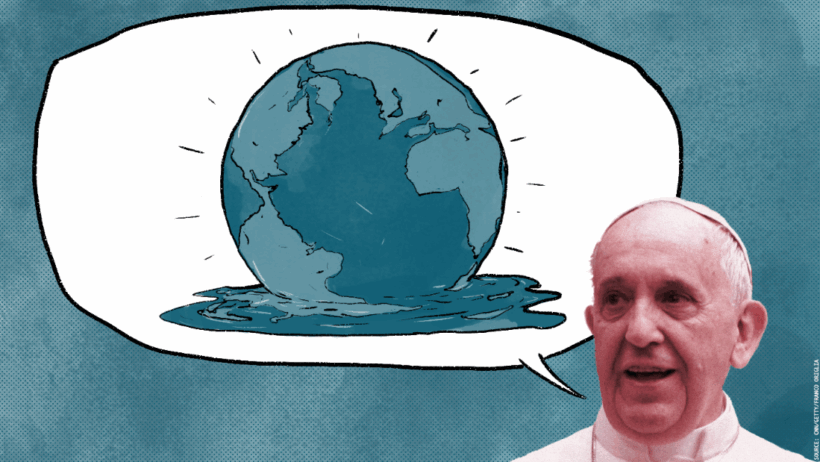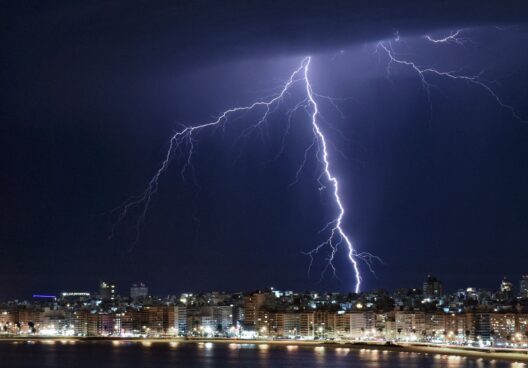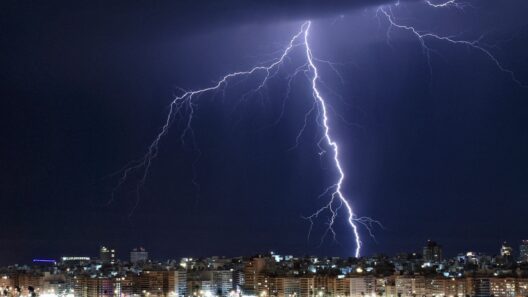Does Pope Francis believe in global warming? This question brings forth a fascinating intersection of faith and science, urging both religious leaders and followers to consider their role in the ongoing climate crisis. The Pope’s stance on climate change underscores a broader moral imperative that transcends scientific discourse, steering the conversation towards ethical responsibility. But what does this mean for believers and the global community at large?
Pope Francis has openly acknowledged the reality of climate change, framing it as a pressing issue that humanity must address collectively. In his encyclical “Laudato Si’,” released in 2015, he unequivocally asserts that climate change is a significant threat facing our planet, one that affects the poor and marginalized the most. This document is not merely a casual observation but a clarion call to action for the faithful and all of humanity. The Pope emphasizes the need for a revolution in how we live our lives and govern our societies, advocating for sustainable practices that reflect a deep respect for God’s creation.
The Pope’s perspective is grounded in a theological framework that highlights the interconnectedness of all life. He posits that humanity’s exploitation of the Earth reflects a broader moral decay. As stewards of the planet, individuals are tasked with safeguarding the environment, one that is intricately woven into the fabric of their faith. The narrative he presents is not just one of environmental degradation but one of social justice, as the most vulnerable populations often bear the brunt of ecological crises.
In pursuing this line of reasoning, the Pope raises an essential challenge: How can religious beliefs influence environmental policy and conservation efforts? For instance, can parishioners and congregations be mobilized to initiate local change? Community-based actions can have profound implications, transforming how Christians view their responsibility not only to one another but also to the environment. The challenge extends beyond mere awareness; it calls for tangible actions, such as advocating for policies that mitigate climate change and supporting renewable energy initiatives.
This call to action is not isolated to the Roman Catholic Church. Various denominations and faith-based organizations have begun to integrate environmental stewardship into their missions. The odyssey towards environmental consciousness is not without its obstacles, however, including differing interpretations of theological teachings. Some groups cite dominion over the Earth as a reason for unrestricted resource exploitation. Yet, others interpret their faith as a commitment to care for creation, aligning closely with the teachings of Pope Francis.
Ultimately, the question arises: Can spiritual belief systems catalyze a robust response to climate change? The answer rests in the potential of collective faith-inspired action. Faith communities have historically played a pivotal role in addressing societal issues, leading movements that advocate for social justice and human rights. By embedding ecological consciousness in their doctrines, these communities can cultivate a culture of care that extends beyond the congregation, inviting collaboration with secular organizations and scientists.
Moreover, Pope Francis encourages open dialogue between science and religion, countering the misconception that they are inherently at odds. He welcomes scientific findings regarding climate change as revelations that can guide ethical decision-making. This bridge between faith and science poses a unique opportunity to disseminate knowledge about climate change while simultaneously fostering a narrative of hope and responsibility.
As nations grapple with the extensive implications of climate change, the role of faith as a motivator becomes increasingly significant. Consider the rhetorical question: Can faith leaders create a paradigm shift in public consciousness, compelling individuals to engage with climate issues on a personal level? By modeling sustainable practices within their communities, faith leaders can serve as powerful advocates for environmental stewardship.
In addressing climate change, the Pope emphasizes the urgency of the situation, insisting that decisive action must happen now. The science warns of dire consequences—more frequent extreme weather events, rising sea levels, and habitat destruction. The moral imperative is clear: delay is not an option, and inaction is not only irresponsible but unethical. Pope Francis’ message resonates across spiritual and secular boundaries, urging a collective awakening to the reality of the climate crisis.
The involvement of the Church in climate issues adds a rich dimension to the conversation. The moral leadership that emerges from such engagement can inspire transformative change. When Christians view care for the environment as an extension of their faith, it fosters a collective commitment that can be profoundly impactful. It encourages individuals to consider their lifestyle choices, from reducing waste to advocating for impactful policies that support sustainability.
Furthermore, the Pope’s commitment to addressing climate change opens the door for interfaith dialogue. Collaborations across different faith traditions can create a unified front against environmental degradation. Such alliances may transcend religious differences, focusing on a shared value: the preservation of creation for future generations. In this, the challenge becomes one of cooperation, urging diverse groups to unite in their efforts to combat climate change.
In conclusion, the question of whether Pope Francis believes in global warming is intricately linked to his broader message concerning faith and environmental stewardship. His teachings firmly position climate change as a moral issue, one that necessitates a revolutionary approach to both personal behavior and systemic change. The interplay between faith and climate advocacy holds vast potential for shaping a sustainable and equitable future. Ultimately, the call to care for our planet is a universal one, inviting all to consider their role in addressing one of the most pressing challenges of our time.







